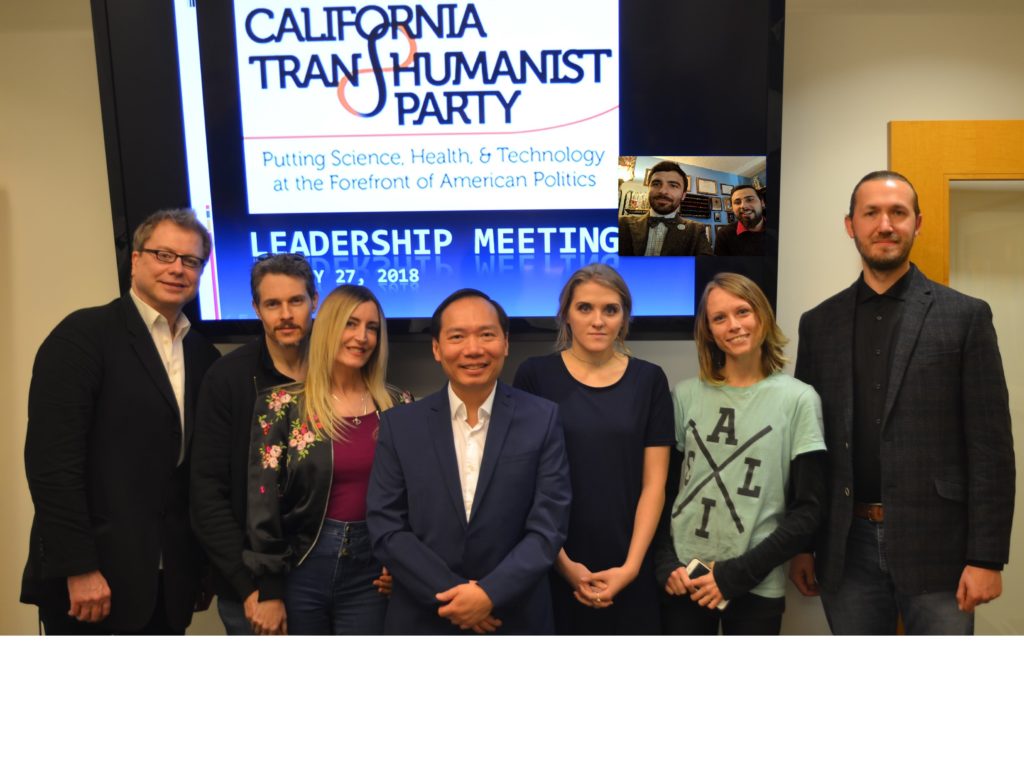The wildly contentious election of 2016 seems to have inculcated certain habits of mind. We are tempted to believe that our role as citizens is like that of a sports fan. We need to choose a team and stick with it, no matter what. Our team needs us.If we lend our voices in support of the other guy, we are betraying our team. The enemy of my enemy is my friend. My friend is imperfect, but to admit this publicly is to weaken our side. It’s a test of loyalty. Therefore bring out the face paint, the jerseys, and the
Vuvuzelas, and let’s fight, fight, fight!
Every day, the media exploits this model, giving us combat spectacles of left vs. right, party vs. party, this person vs. that person. This drives ratings, which is evidence that people find it intriguing. It allows spectators to participate by shouting at the TV, yelling at the radio, posting angrily on social media, having sub-tweet wars, and so on. We mimic what we see in these venues and even begin to talk like the vituperative and viral voices that fill up our feeds.
Go Team!
That turned on a light for me. I realized that there is something insidious about any approach that requires you to shut off the critical capacity of your intellect. The truth is not embodied in any political faction. If I expected to think with integrity, I had to go my own way. Realizing this was a hinge in my life, I never looked back.
The Friend/Enemy Model
To be sure, putting your brain on the shelf for political advantage has a long philosophical tradition behind it. There are of course the Marxists, who tag people as exploiters or the oppressed based on class identity – and their modern successors who apply these designations, to the point of absurdity, to a huge range of characteristics of race, sex, religion, physical ability, and gender identity. To them, life can be nothing but conflict.
But it’s not just a left-wing problem. Have a look at the work of Carl Schmitt – a right-wing Hegelian/Nietzschean – and his 1932 essay “The Concept of the Political.” (If you already know something about the situation in German academia in 1932, you can guess the rest.)
To Schmitt, to be political is the highest calling of the human person, and this always means separating people according to friends or enemies. He despises classical liberalism and economics precisely for the reason that they attempt to obliterate the friend/enemy distinction, replacing it with trade, cooperation, and forms of competition in which every competitor wins.
On what basis does politics make the friend/enemy distinction? Schmitt says it has nothing to do with norms or even high theory. “In its entirety,” he writes, “the state as an organized political entity decides for itself the friend-enemy distinction.”
But what does it mean to be an enemy? It refers to “the real possibility of physical killing.” Without bloodshed, it means nothing, which is why “war is the existential negation of the enemy. It is the most extreme consequence of enmity.”
So let’s review. To be political is the essence of life, according to Schmitt. The core of the political means to be willing to kill enemies. Therefore, we might conclude from his writings, death itself is the essence of life. Thus did Carl Schmitt become the leading philosopher of National Socialism and the intellectual font of what became the Holocaust.
Elections and Warfare Sociology
It’s true that the friend/enemy model makes sense to many people during the election season. We are all empowered with the vote. We feel a great sense of responsibility for how we use it, despite overwhelming evidence that your one vote will not swing an election. It’s mostly symbolic, but it matters, because people like participating in the democratic process, gaining power for friends and obliterating the enemy.
But the election is over. Why does this attitude persist even though no one in politics and government will be asking for our presidential vote for another four years? It’s a kind of addiction, a mental habit that gives us considerable pleasure. Maybe it’s primal, an instinctual form of low-grade violence that Freud suggests we need to overcome to have civilization.
In practice, what does blindly cheering for one team over another in politics achieve? Nothing good, in my view. It becomes psychologically debilitating to expend so much time and energy on it. Indeed, politics pursued in this fashion is poison to the human spirit. It relies on sustaining a level of hate that is toxic for anyone who wants to live a full life.
The Problem of Trumpism
The problem is compounded by the lack of intellectual coherence at the top of the ruling party. It’s not exactly a new problem, but it is unusually poignant in the case of Donald Trump. We haven’t seen this level of nationalist rhetoric in my lifetime, and it pertains to the core functioning of American economic life. The lack of appreciation for the intellectual and political achievements of free trade is palpable. Adding to that, he seems to be pushing for expensive infrastructure spending, more military pork, and an immigration policy that would certainly require extensive surveillance of American businesses.
At the same time, he has said some wonderful things about deregulation, tax cuts, bureaucracy downsizing, education, and health care, proposals dear to any liberty lover’s heart.
At best, then, the agenda is confused. So people are weighing the relative benefits and costs. Will the benefits of tax cuts be so great as to make up for the downside of new tariffs? How bad will the immigration controls be compared with the supposed benefits to national security? And so on.
This is not just an intellectual exercise. The end game here is to answer the critical question: should we favor this team or oppose it?
Think for Yourself
I suggest that this is the wrong way to think about the matter. We should not obsess over the question of whether we should cheer Trump or condemn him, become his fans or swing into opposition, defend him against enemies or become his enemies.
There is another approach. It is not easy in a hugely partisan political environment, but it is the right one. Stay independent, think clearly, watch carefully, adhere to principle, speak fearlessly, praise when good things happen and oppose when bad things happen, tell the truth as you see it, and otherwise be ever vigilant in defense of rights and liberties, yours and everyone’s. To be steadfast and honest in these times is the height of political virtue.
“At all times sincere friends of freedom have been rare,” says Lord Acton, “and its triumphs have been due to minorities.”
So, yes, by maintaining your objectivity and principles in these times, you will be in the minority. But you will be a friend of freedom, and you could make all the difference.

Jeffrey Tucker is Director of Content for the Foundation for Economic Education. He is also Chief Liberty Officer and founder of Liberty.me, Distinguished Honorary Member of Mises Brazil, research fellow at the Acton Institute, policy adviser of the Heartland Institute, founder of the CryptoCurrency Conference, member of the editorial board of the Molinari Review, an advisor to the blockchain application builder Factom, and author of five books. He has written 150 introductions to books and many thousands of articles appearing in the scholarly and popular press.
This article was published by The Foundation for Economic Education and may be freely distributed, subject to a Creative Commons Attribution 4.0 International License, which requires that credit be given to the author. Read the original article.
 Gennady Stolyarov II
Gennady Stolyarov II














